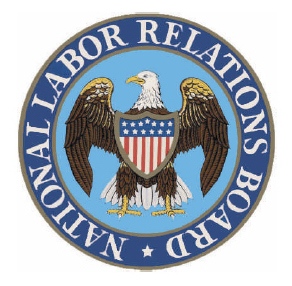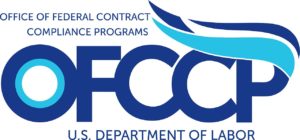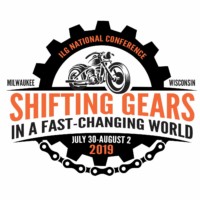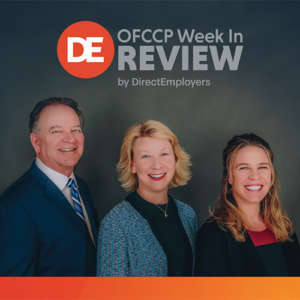Tuesday, February 5, 2019: Pearce Out for NLRB

The Board has five Member positions (one currently vacant). The President appoints Members to 5-year terms, with the advice and consent of the Senate, with one Member term expiring each year.
Current NLRB Board Members:
- Republican John Ring (Chairman), term expires December 16, 2022
- Republican Marvin Kaplan, term expires August 27, 2020
- Republican William Emanuel, term expires August 27, 2021
- Democrat Lauren McFerran, term expires December 16, 2019
- VACANT
Tuesday, February 5, 2019: EEOC Timeline Updates

- Private Sector Charges & Investigations
- Freedom of Information Act (FOIA) Requests
- Federal Sector Complaints, Hearings & Appeals
- EEO-1 Survey (opening delayed; date to be determined)
Tuesday, February 5, 2019: Focused Review Scheduling Letter Revealed

Five hundred contractors will see this Letter later this year. See below for a related story discussing Friday’s ILG Meeting in Indianapolis and the coming advent of these Focused Review Audits.
In summary, contractors will need to provide:
- Current Executive Order 11246 Affirmative Action Program (AAP);
- Current Section 503 AAP;
- The contractor’s formation of job groups under 41 CFR §60-2.12 in its AAP for Minorities and Women;
- Effectiveness Review. Results of the evaluation of the effectiveness of outreach and recruitment efforts that were intended to identify and recruit qualified individuals with disabilities;
- Documentation of all actions taken to comply with the annual audit and reporting system 41 CFR §60-741.44(h) requires;
- Data Metrics. The annual Data Collection analysis 41 CFR §60-741.44(k) requires;
- Utilization Analysis. The utilization analysis evaluating the representation of individuals with disabilities in each job group which 41 CFR §60-741.45 requires;
- EEO-1 Survey for the last three years;
- Collective bargaining agreement(s), if applicable. Other documents, such as policy statements, employee notices or handbooks, etc. that implement, explain, or elaborate on the provisions of the collective bargaining agreement;
- Reasonable accommodation policies, and documentation of any accommodation requests received and their resolution, if any;
- Assessment of personnel processes, including the date the assessment was performed, any actions taken or changes made as a result of the assessment, and the date of the next scheduled assessment which 41 CFR §60-741.44(b) requires; and,
- Assessment of physical and mental qualifications, including the date the assessment was performed, any actions taken or changes made as a result of the assessment, and the date of the next scheduled assessment which 41 CFR §60-741.44(c) requires;
Note: As with regular OFCCP Supply and Service Audit Scheduling Letters, contractors will have 30 days to respond to the document requests contained in OFCCP’s Section 503 Focused Review Audit Scheduling Letter. Also, OFCCP will identify the 500 Section 503 Focused Reviews OFCCP intends to evaluate in 2019 in OFCCP’s next coming Corporate Scheduling Announcement. See related (“OFCCP Updates”) story below.
Wednesday, February 6, 2019: U.S. Ninth Circuit Court of Appeals Adopts “Common Law” Test for First Time in “Joint-Employer” Context
The United States Court of Appeals for the Ninth Circuit (San Francisco) overturned a trial court’s dismissal of the EEOC’s Title VII federal District Court Complaint against fruit growers as to their alleged differential assignment of worker housing, meal, and transportation to Thai agricultural workers allegedly based on their national origin.
Legal Issue # 1: “Control” Of Employees Is the Key
- In reversing the federal District (trial) Court’s dismissal of the EEOC’s Complaint, a Three-Judge panel of the Court adopted, for the first time at the Ninth Circuit, the “common law” “control test” to determine whether a company is liable as a “joint-employer” for Title VII violations. The Panel held that the “principal guidepost to determine whether an entity is an employer rests upon the element of control.“ The case is EEOC v. Global Horizons, Inc., et al., Case No. 16-35528 (9th Cir. February 6, 2019).
Legal Issue # 2: You Are Your Brother’s Keeper
- The Three-Judge panel also addressed the issue of the responsibility of one employer in a joint-employer relationship for the unlawfully discriminatory acts of a second employer in the joint-employer relationship. Joining two other sister federal appellate circuit courts, the Ninth Circuit Panel first concluded in the Global Horizons decision that “one joint employer is not automatically liable for the actions of the other.” Then, however, the Panel went on to further conclude that “[l]iability may be imposed for a co-employer’s discriminatory conduct only if the defendant employer knew or should have known about the other employer’s conduct and “failed to undertake prompt corrective measures within its control.”
What happened here was that two growers in Washington state (Green Acre Farms and Valley Fruit Orchards) joined together to hire Global Horizons Manpower (a staffing agency) to recruit temporary orchard workers from Thailand, transport them to the United States, house and feed them in Washington state and transport them to and from the job site every day. While assigning those duties to Global Horizons, the Growers:
- were nonetheless charged by immigration law (the H-2A guest worker visa program) to be responsible for these housing, feeding, and transport duties, and
- the EEOC’s (dismissed) Complaint alleged that the growers knew about allegedly substandard housing and feeding conditions that Global Horizons was allegedly subjecting the Thai workers to endure while allegedly preferentially treating Hispanic orchard workers to better housing and food services.
Accordingly, taking the allegations in the EEOC’s Complaint as true (for the purposes of testing whether the growers could dismiss the EEOC’s Complaint as a matter of law because they could not legally be responsible for Global Horizons’ bad acts), the three-Judge Panel in the Global Horizons case found that the EEOC had sufficiently alleged that the growers knew about the claims of differential housing and food programs, but had done nothing that was within their control to stop Global Horizons. Reversing the federal District Court’s dismissal of the EEOC’s Complaint, the Panel thus remanded the case to proceed to trial to test the truth of the EEOC’s allegations of unlawful behavior as to the Thai workers.
The Global Horizons Title VII decision complements the common law “control test” which the NLRB has adopted in the Browning-Ferris Industries case as to concerted protected activity arising under the National Labor Relations Act. And, the Global Horizons case decision now also helps inform OFCCP’s legal standard in joint-employer matters since OFCCP’s Federal Contract Compliance Manual instructs OFCCP to apply Title VII law as to discrimination issues arising under Executive Order 11246.
Punchline: The common law “control test” is slowly, but steadily, becoming the prevailing legal standard to determine employment status across multiple areas of employment law..
Wednesday, February 6. 2019: OFCCP Announced Tech Industry Town Halls
The Office of Federal Contract Compliance Programs (“OFCCP”) is planning to host two town hall meetings focused on the technology industry. The goal is for them to gain insight to enhance the scope and quality of compliance assistance materials and to create events geared towards the technology industry.
When & Where
- San Jose, California: February 26, 2019
- Seattle, Washington: February 28, 2019
You can register for a town hall through OFCCP’s website.
Who Should Attend
- Human Resource Managers
- Equal Employment Opportunity Specialists
- Chief Compliance Officers
- Personnel in the technology industry who are directly involved with ensuring their company’s compliance with OFCCP’s requirements.
Note: There are only two tickets available per organization on a first come, first serve basis.
Friday, February 8, 2019: “Not Listing Jobs is a Violation!”

OFCCP Updates
Maxine Manus, District Director for Kansas City, reiterated the news that OFCCP would no longer mail Corporate Scheduling Announcement Letters (“CSALs”). Rather, Contractors will need to look to the OFCCP Freedom of Information Act (“FOIA”) page to see the list of contractors selected for a Compliance Evaluation. The time frame for the list to go public is in March or April.
Focused Reviews Coming!
- 3,500 is the magic number of Compliance Evaluations expected during this coming year, with 500 of those expected to be a newly created Section 503 Focused Review. See related article in this WIR discussing the freshly created OFCCP Focused Review Audit Scheduling Letter.
Compliance Checks to Return?
- With a large workload and with increasingly limited staff, Ms. Manus advised Contractors to possibly expect to see a return to the use of “Compliance Checks.” OFCCP has existing OMB approval to conduct Compliance Checks, an investigative tool OFCCP Director Shirley Wilcher created in the Clinton Administration, and OFCCP Director Charles James in the Bush Administration implemented and then stopped as too costly for OFCCP.
- Compliance Checks were on-site audits lasting approximately 20 minutes during which OFCCP Compliance Officers would gather one specified document illustrating the contractor’s compliance with each of the three “statutes” OFCCP enforces. Compliance Checks were intended to “tickle” the Contractor to remind it of its OFCCP compliance obligations, hoping to harness the goodwill and much greater resources of the contractor to fulfill its compliance duties.
Best practices per the OFCCP representatives present:
- LIST YOUR JOBS WITH THE STATES!
- Per Ms. Manus, “Not listing jobs is a violation.” She went on to say, “List your jobs and be able to verify it.” OFCCP will contact the State Career One-Stop Centers and ask to see the listings of the contractor under review.
- Remember listing jobs is not posting jobs. Employers list, States may choose to post.
- DE Members needing help pulling their verification reports should reach out to their Member Service Representative, or contact Jennifer Polcer.
- DISPOSITION CODE CONSISTENCY!
- Train relevant personnel on disposition codes and use codes consistently across the workforce.
- DE Members, look at sample disposition codes and watch “Disposition Codes: Why Not to use “More Qualified Candidate Selected” in the Connect Community.
- HAVE YOUR AFFIRMATIVE ACTION PLAN READY!
- Reportedly, 80% of covered contractors do not have their Affirmative Action Plan(s) set-up or ready to submit when the Compliance Evaluation comes. Contractors have 30-days to submit their AAP(s) after receiving a Scheduling Letter. Don’t delay, get your house in order.
EEOC Updates
- The #METOO movement continues to grow. Companies need to continue anti-harassment training, immediately follow up on harassment complaints and build a company culture that includes civil obedience.
- Remember that mediation is available to help resolve employment disputes. In mediation, a neutral mediator assists in reaching a voluntary, negotiated agreement. This method can reduce employer costs significantly.
NILG – Save the Date!

Early Bird registration is open, sign up and see more details here.
- July 30 – August 2, 2019, in Milwaukee, Wisconsin
DE Members – be sure to check the events calendar for this and other relevant events coming up!
DirectEmployers Update: We’ve Moved!
Over the weekend, the DirectEmployers staff and the Recruit Roosters relocated down the road a-ways here in Indianapolis. Please make a note of our new address which is now effective:
7602 Woodland Drive, Suite 200, Indianapolis, IN 46278
E-mail addresses and phone numbers remain unchanged. Stay tuned for more information on our new home and what is sure to be some great video footage of the DE staff settling in!
SUBSCRIBE.
Compliance Alerts
Compliance Tips
Week In Review (WIR)
Subscribe to receive alerts, news and updates on all things related to OFCCP compliance as it applies to federal contractors.

